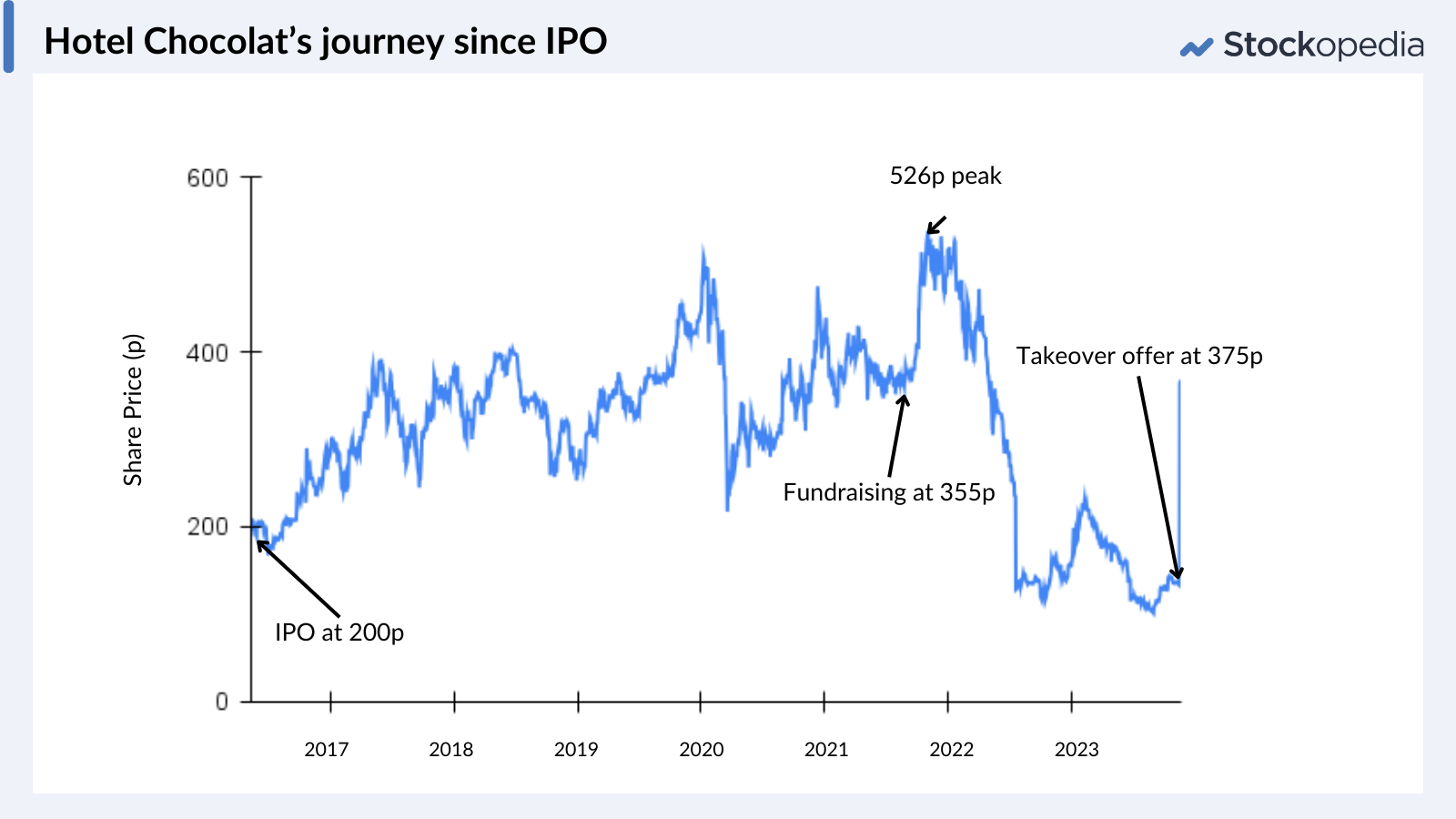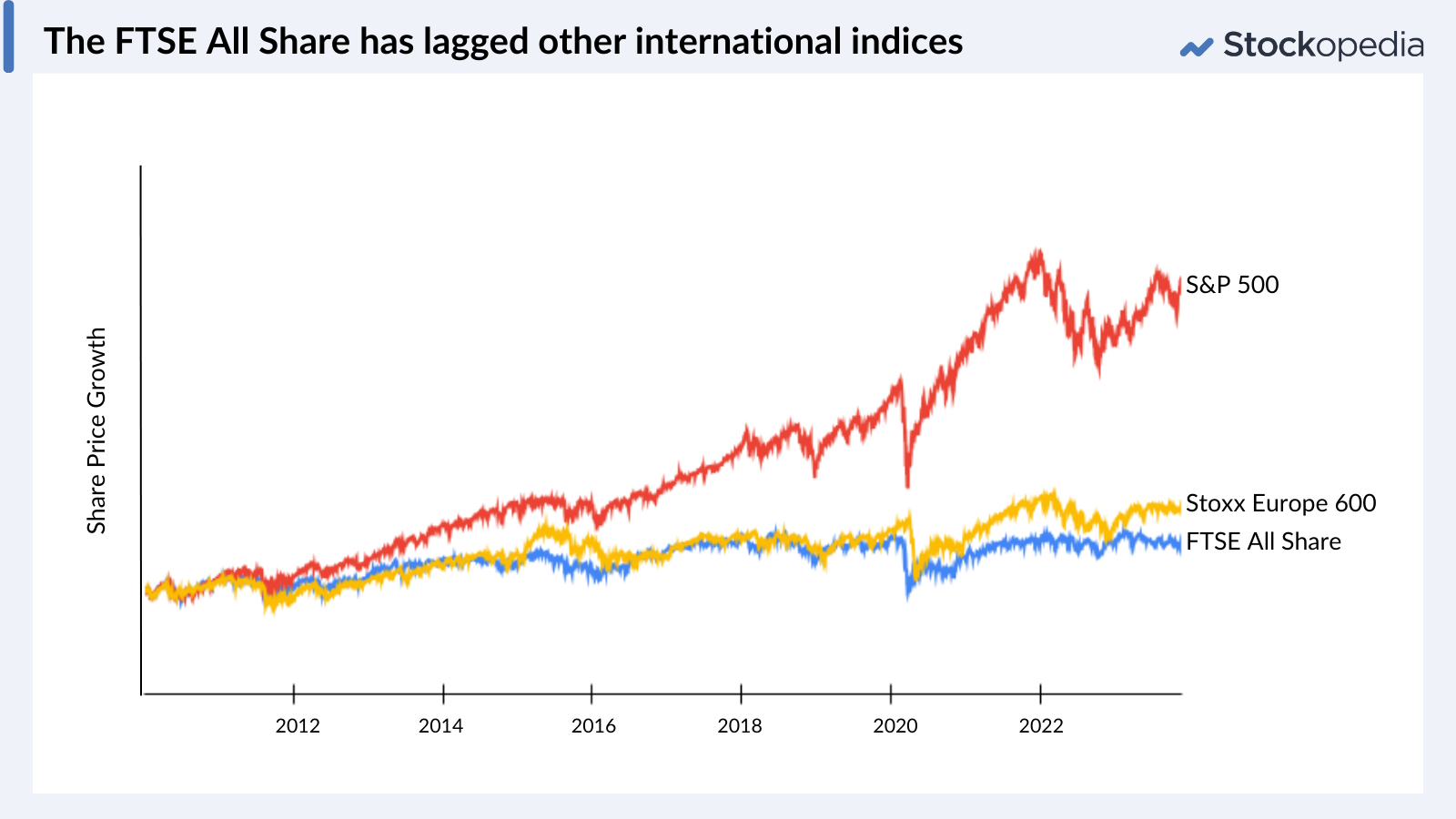Last week, US confectionary giant Mars made a takeover bid for Hotel Chocolat which valued the AIM-traded company at £524m (or 375p a share) - a whopping 170% premium to the previous day’s closing price.
Now that looks pretty exciting for the company’s investors until you take a look at the share price chart.

Hotel Chocolat listed at 200p per share in May 2016. In July 2021, management raised £40m from shareholders in a placing at 355p per share. The bid from Mars offers the investors who bought into that placing just a 6% premium.
And Hotel Chocolat is not the only UK-listed company whose share price weakness has caught the attention of opportunistic dealmakers. Halfords has recently walked away from merger talks with Redde-Northgate stating the offer on the table undervalued the business. Halfords is currently worth £500m, which is about half the value it reached during 2021 when the UK was in the midst of its post-pandemic cycling boom. The merger offer from Redde-Northgate would have built a combined business worth £1.4bn and offered shareholders no premium.
Looking at market performance charts from the last few years, it’s hardly surprising that the UK is ripe for consolidation. While international indices including the S&P 500 and Stoxx Europe 600 have climbed, the FTSE All Share is almost flat over the last decade. And the picture is even more bleak for Aim, which was the worst performing index in the world in 2022 and (after a 15% decline in the year to date) looks on track to match that miserable statistic this year.

The UK market equity discount to the rest of the world is reportedly at its widest level ever and the FTSE All Share is trading on a price to earnings ratio of 12.9 times, compared to a historic average of close to 20 times.
Solutions, reviews and reforms
And all this negativity is starting to fuel a vicious cycle. Companies go public to access capital and expand, but depressed valuations means the appetite for listing in the UK is very low, so great British businesses are looking to international and private markets to raise funds. Thus, companies are leaving the UK public markets faster than they are being replaced, fuelling further negative sentiment.
The situation has not gone unnoticed.
In 2021, an independent review conducted…







